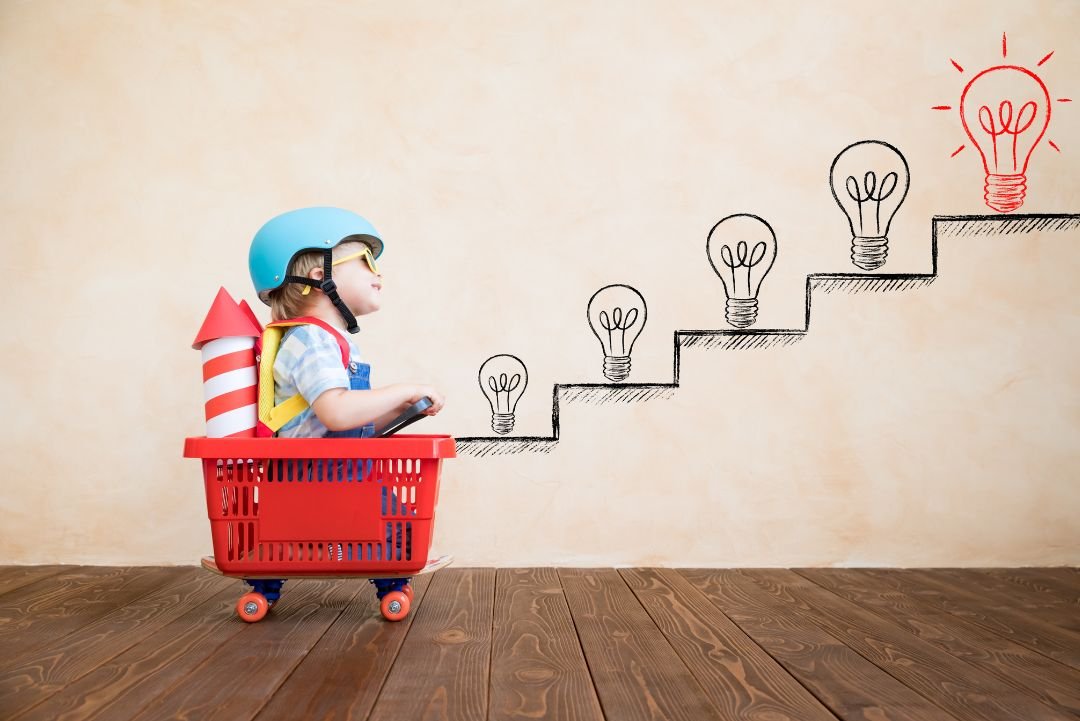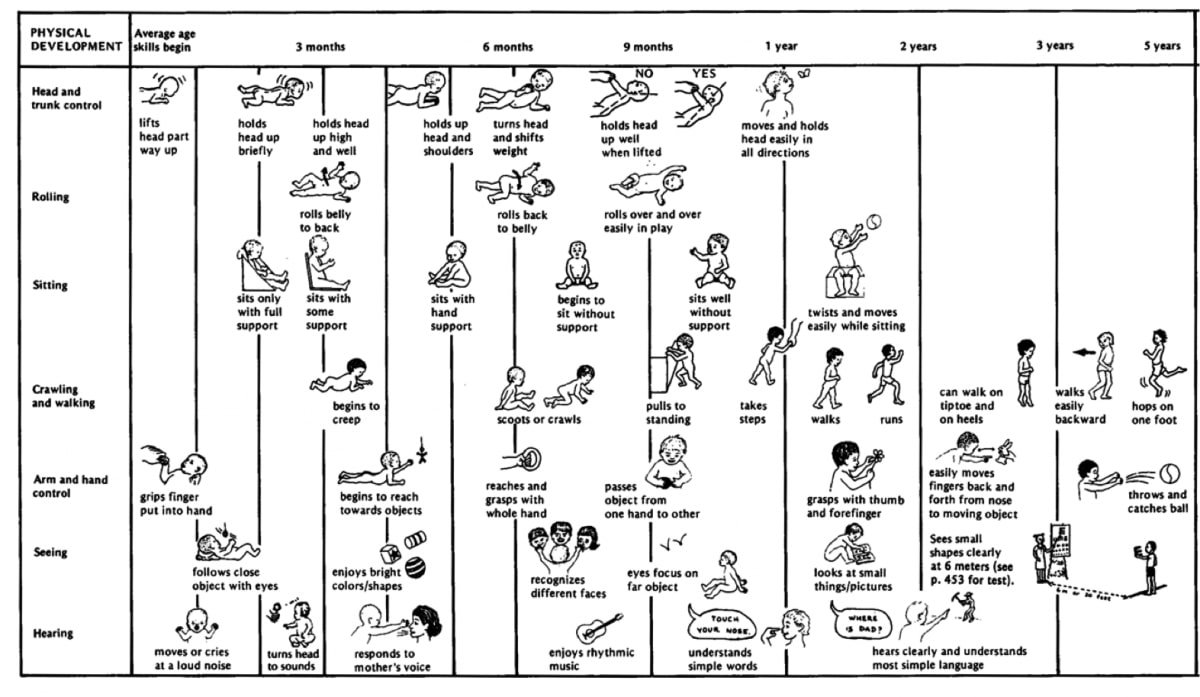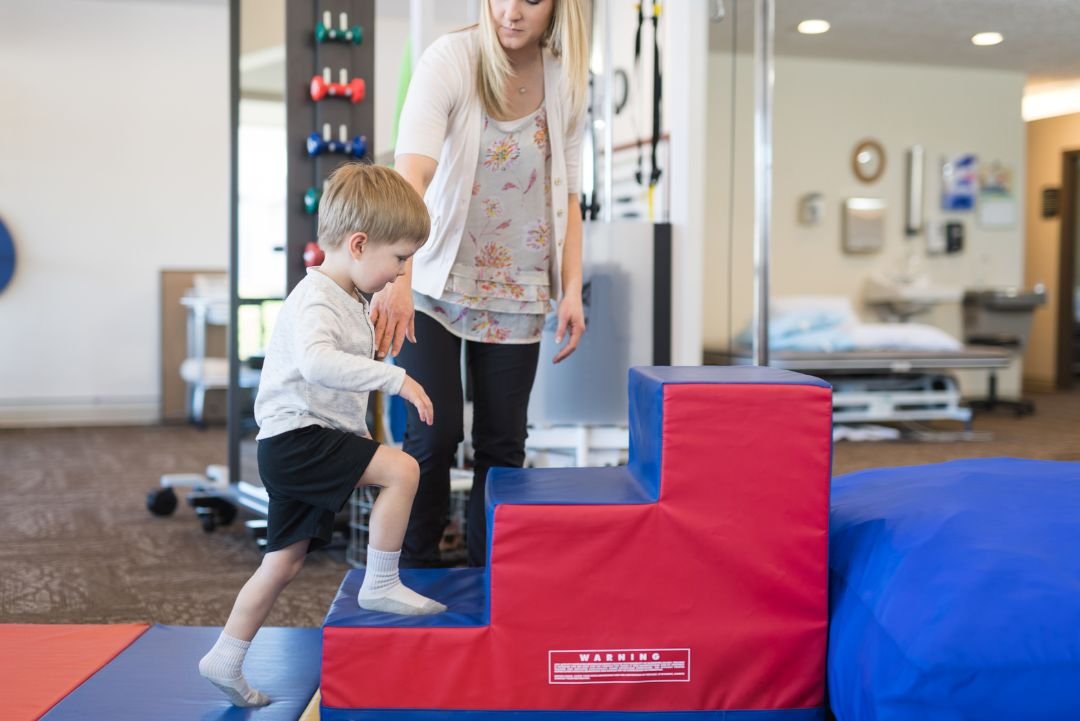Global Developmental Delay: The Benefits of NDIS Physiotherapy
Global developmental delay is a condition that can significantly impact a child's physical, cognitive, emotional, and social development. Children with Global Developmental delays may experience challenges with motor skills, language development, and social interactions, among other things. Physiotherapy is one intervention that can help children with Global Developmental Delay overcome these challenges and achieve their developmental milestones. In this article, we will explore the benefits of physiotherapy for children with Global Developmental Delay and how this form of therapy can support healthy development and improve the quality of life for both children and their families.
What is "child development"?
Child development refers to the biological, cognitive, emotional, and social changes that occur in children as they grow and mature from birth through adolescence. It is typically divided into several stages or periods, such as infancy, toddlerhood, preschool, middle childhood, and adolescence. During each stage, children acquire new skills, knowledge, and abilities that build on the foundation of their previous development.
Abnormal delays in development refer to significant delays or impairments in one or more areas of a child's development that are outside the normal range of development for their age. These delays may be the result of underlying medical or neurological conditions, environmental factors, or a combination of both.
Abnormal development delays can manifest in various ways, depending on the area of development that is affected. For example, a child with an abnormal delay in language development may have difficulty communicating or understanding language. In contrast, a child with an abnormal delay in gross motor skills may have trouble with movements such as crawling or walking.
How does the NDIS define “developmental delays”?
According to the NDIS Act 2013:
"developmental delay means a delay in the development of a child under 6 years of age that:
(a) is attributable to a mental or physical impairment or a combination of mental and physical impairments; and
(b) results in a substantial reduction in functional capacity in one or more of the following areas of major life activity:
(i) self‑care;
(ii) receptive and expressive language;
(iii) cognitive development;
(iv) motor development; and
(c) results in the need for a combination and sequence of special interdisciplinary or generic care, treatment, or other services that are of extended duration and are individually planned and coordinated.”
What are the signs and symptoms of Global Developmental Delay?
The signs and symptoms of Global Developmental Delay can vary depending on the child's age and individual circumstances. However, some common signs and symptoms of Global Developmental Delay may include the following:
Delays in reaching developmental milestones such as sitting up, crawling, walking, talking, and other age-appropriate skills
Difficulty with coordination and motor skills, such as walking or using utensils to eat
Problems with speech and language development, including limited vocabulary, difficulty forming sentences, or difficulty understanding language
Difficulty with social interactions, such as not making eye contact, not responding to their name, or not showing interest in playing with others
Behavioural issues, including tantrums, aggression, or difficulty following instructions
Inability to learn new skills or adapt to new environments
What is motor development?
Motor development refers to the changes and progressions that occur in a child's physical ability to move and control their body as they grow and mature. It encompasses the development of gross motor skills, which involve large muscle groups and movements, such as walking and jumping, and fine motor skills, which involve smaller muscle groups and movements, such as grasping and writing.
Motor development typically follows a predictable sequence of milestones, which include lifting the head, rolling over, sitting up, crawling, standing, walking, running, jumping, throwing, catching, and manipulating small objects with the hands. These milestones are important indicators of a child's development and are typically monitored by healthcare professionals and caregivers.
Physical Development: Motor Milestones
What are the benefits of physiotherapy for Global Developmental Delay?
Physiotherapy can offer several benefits for children with Global Developmental Delay, as it can help to improve their physical function, mobility, and overall quality of life. Here are some specific benefits of physiotherapy treatment and therapy for children with Global Developmental Delay :
Improved motor skills: Physiotherapy can help children with Global Developmental Delay to develop and improve their motor skills, including balance, coordination, and overall mobility.
Enhanced flexibility and strength: Through targeted exercises and movements, physiotherapy can help to improve the flexibility and strength of a child's muscles, joints, and bones, which can improve their overall mobility and help to prevent future injuries.
Improved posture and alignment: Physiotherapy can help to improve a child's posture and alignment, which can, in turn, help to reduce pain and discomfort and improve their overall function and quality of life.
Enhanced independence: By improving a child's mobility and function, physiotherapy can help to promote independence and self-care, allowing children to participate more fully in activities of daily living.
Improved social participation: By improving a child's physical function, physiotherapy can also improve their ability to participate in social activities and interact with others, which can positively impact their overall social and emotional development.
While physiotherapy typically targets motor skills, it can also indirectly lead to improvements in other areas of development. By improving a child's physical abilities and mobility, physiotherapy can positively impact other areas of development, such as social and emotional skills, cognitive abilities, and self-care.
What techniques and therapies do physiotherapists use to address the motor aspects of Global Developmental Delay?
Range-of-motion exercises: These exercises involve moving joints through their full range of motion to improve flexibility and prevent stiffness.
Strengthening exercises: These exercises are designed to improve muscle strength and function, which can help children with Global Developmental Delays to achieve greater mobility and independence.
Balance and coordination exercises: These exercises can help to improve a child's balance, coordination, and overall motor skills, which can improve their ability to perform activities of daily living.
Functional activities: Physiotherapists may incorporate functional activities into a child's therapy, such as walking, climbing stairs, or performing other activities that are relevant to their daily life.
Hydrotherapy: Hydrotherapy involves exercising in a pool, which can help to reduce the impact on joints and muscles and promote relaxation and muscle flexibility.
Assistive devices: Physiotherapists may recommend the use of assistive devices, such as braces, crutches, or wheelchairs, to improve mobility and support healthy development.
What makes Realisation Healthcare's physiotherapy different?
Realisation Healthcare is an NDIS registered Physiotherapy provider. At Realisation Healthcare, we get to know your child as an individual and how your child’s disability impacts their quality of life, function, and well-being. We use the Realisation Healthcare approach to understand everything about your child, what is important to you and your child, and your goals for your child, and combine it with our tailored and individualised physiotherapy services to enable your child to live life to the fullest. Our goal is to allow your child to realise their true potential.
We respond to all queries and questions within 24 hours, and bookings can be made within a week. Contact us today through phone, email, or a casual chat over messenger to see how we can help you. You can also fill out the referral form by clicking on the button below.
Frequently Asked Questions:
How often should Physiotherapy be provided for Global Developmental Delay?
Physiotherapy for Global Developmental Delay should be provided on a regular basis, with a frequency that is best determined by a healthcare professional. Generally speaking, physiotherapy sessions should be tailored to the child's needs and may include weekly biweekly, or even daily sessions. Realisation Healthcare’s physiotherapists can assess your child’s needs and determine the frequency of physiotherapy that will provide the most benefit under your NDIS plan.
Will my child "outgrow" developmental delay?
It's possible that your child will outgrow a developmental problem on their own. But, with support such as physiotherapy, speech pathology and occupational therapy, your child is more likely to reach their full potential.
Is Global Developmental Delay the same as Autism?
Although Autism and Global Developmental Delay are distinct conditions, they can exhibit similar signs or symptoms, and it's possible for a child to be diagnosed with both simultaneously. Global Developmental Delay is characterized by a delay in reaching developmental milestones, whereas Autism is associated with difficulties in social interaction and repetitive behaviour.
Is Global Developmental Delay covered by NDIS?
According to the NDIS guidelines: Children younger than 6 with a developmental delay may be eligible for the NDIS under the early intervention requirements.
To be eligible, the NDIS needs to know that the child is:
is younger than 6 on the day we decide whether they’re eligible
lives in Australia
is an Australian citizen or permanent resident.
What is the best treatment for developmental delay?
There is evidence that early identification and intervention improves outcomes for both the child and for the family. Depending on what domains are affecting the child's development, Speech Therapy, Occupational Therapy, Physiotherapy and Applied Behaviour Analysis therapy are common treatments available to support a child with GDD.








